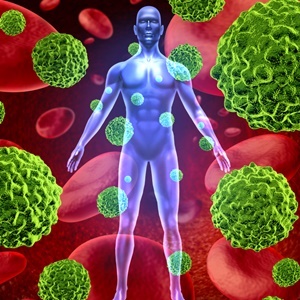
What is the immune system?
Think of your body as a walled city, being attacked by an invading army. The invading army consists of millions of bacteria, viruses, toxins and parasites that are dying to get in.
Your immune system is the defending army, which is trying to stop enemy soldiers from getting in through the gates or over the walls. The miracle is that the defending army wins most of the time. But when it doesn’t, the city’s defences are breached – in short, you get infected by one of the micro-organisms mentioned above. This can lead to illness, infections, tissue damage, discomfort and even death.
Your immune system consists of a variety of mechanisms that have the ability to recognise and kill micro-organisms that are attacking you. Read more below about how this works.
How does it work?
Keeping micro-organisms at bay is not a simple process. Your body's immune system is complicated. This summary should give you an overview.
How much is genetics and how much lifestyle?
Some diseases run in families – but the question is often asked whether this is because they have the same genes, or because they share a lifestyle. Quite a few studies have been done on this topic – mostly involving mice. Doing this kind of research on humans raises some ethical issues.
It’s a difficult question to answer. It is obvious that some of our immune responses have to be genetic in origin. Apart from the DNA we get from our parents, a baby also is protected for the first year or two of its life by a certain degree of inherited immunity from its mother. We share other genetic features with our parents – and a strong or weak immune system could be one of those.
But our health and our lifestyle of choice are inextricably linked. While there must be people out there who never do any exercise, who eat junk food, and who smoke and manage to live to the age of 90, for the vast majority of people there will be a connection between their health, their diet, their fitness levels and their health.
Fitness, enough sleep and a healthy diet will assist the immune system to fight disease.
How can I boost my immune system?
Boosting your immune system is often a byproduct of a healthy lifestyle – regular sleep, a healthy diet, no smoking, exercise on a regular basis and good stress-busting mechanisms could all contribute to your health.
There are also specific supplements that can be taken in order to boost your immune system. But nothing can beat the collective result of healthy choices you make. You cannot expect a supplement to counteract heavy smoking or drinking, a couch-potato lifestyle or a junk food diet.
What are the consequences of poor immunity?
The answer is frightening: constant colds and flu, , cold sores, diabetes and even cancer.
If your immune system is not functioning properly, you could be a victim of every opportunistic infection that is out there. Not only will you be ill frequently, but you will also take a long time to recover from whatever has made you ill.
Allergies – the false alarms of the immune system
An allergy is an abnormal sensitivity or reaction of your immune system to a substance (an allergen) that you eat, inhale or touch. Non-allergic people can usually tolerate this substance.
Nearly 50% of all people who suffer from allergies have hay fever. If both parents have allergies, their children are more likely to develop an allergy, although not always the same kind of allergy.
Almost 70% of adults with food allergies are younger than 30 years and most children are under three years old.
Allergies are often treated with antihistamines or, in severe cases, with cortisone.
Diseases of the immune system
These include Aids, cancer and Crohn’s disease.
Certain viruses, such as HIV, specifically target the immune system and interferes with its ability to find or target and destroy certain micro-organisms. These diseases can damage the immune system permanently, and could result in death.
What are auto-immune diseases?
Sometimes the immune system mistakenly identifies a part of the body as being a harmful foreign substance. It then sets about to destroy this substance. These diseases are called autoimmune diseases and include type 1 diabetes, lupus, multiple sclerosis, Addison's disease and rheumatoid arthritis.
Antibodies are specific proteins made by the body's immune system to fight infection or harmful foreign substances. However, in autoimmune disease, the body makes antibodies that attack the body itself. Interestingly enough, the antibodies are often present in the body long before the disease is diagnosed.




 Publications
Publications
 Partners
Partners














